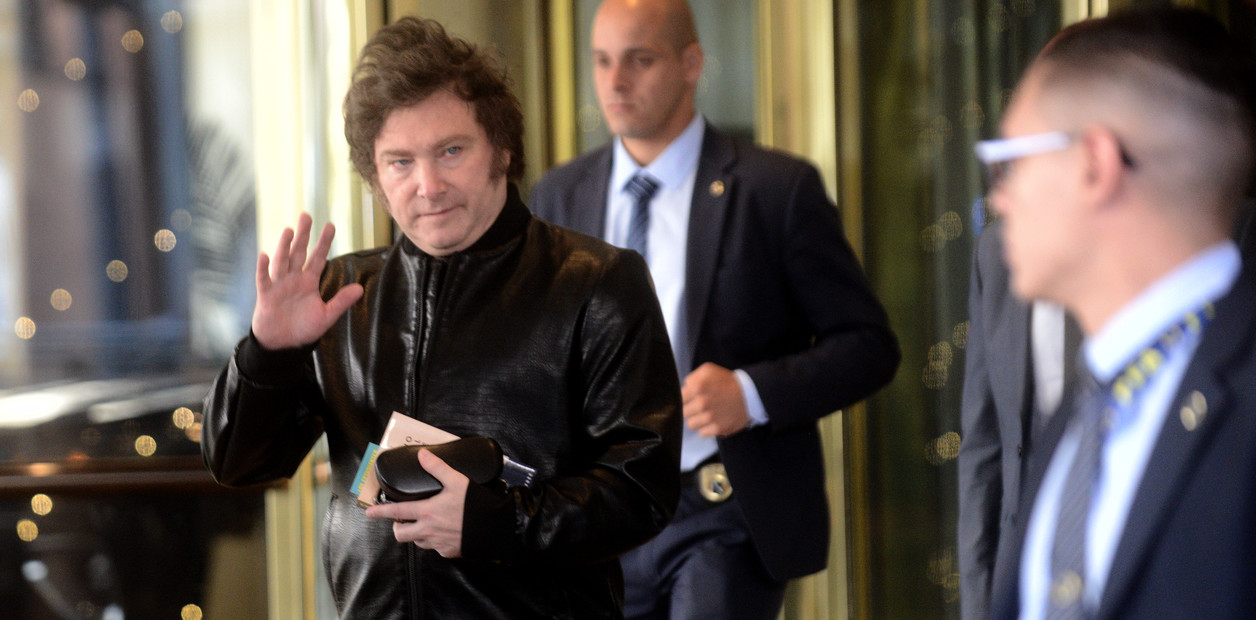International
Milei reforms Argentina, but reduces also gathering freedom

Javier Milei continues in the presentation of his reforms that, by presidential decree, must then be approved by parliament on January 25, after the work of no less than four parliamentary committees that will have to examine them. We will talk about this in a moment and present some of these reforms. Milei is astute: there are also popular measures in the reforms, and anyway, put all together, they have a stunning effect. Let us add that the unions were unable, after four years of lethargy during the Peronist government, to organize anything more than a day of strike on January 24. As in Italy, the fact that they have been associated with power for so many years makes them less credible.
Still, Milei has taken his own measures against popular protests, especially the most fearsome ones: spontaneous ones.
No gatherings of more than three people without permission and exemplary punishments for roadblocks
The national security chapter of the Law of Bases and Points of Departure for the Freedom of Argentines, the so-called omnibus law, regulates protests and requires permission if more than three people want to meet in a public space.
In Article 331, the bill stipulates that “a ‘gathering’ or ‘demonstration’ is defined as the intentional and temporary gathering of three (3) or more persons in a public space for the purpose of exercising the rights set forth herein.”
In addition, an “organizer” of the protest is defined as one who “summons other people to participate in the gathering,” “coordinates people for the conduct of the meeting,” “provides any kind of material or logistical means for the conduct of the meeting,” “the list of calls, and “records attendance or absence by any means of written or image recording.” That is, if you take video of the unauthorized event, you risk prosecution
Not only that, it is stipulated that “those who direct, organize, or coordinate a meeting or demonstration that prevents, obstructs, or obstructs public or private traffic or transportation or causes injury to persons or damage to property” shall be punished by imprisonment from 2 to 5 years, even if they are not present at the event.
Beware that now the organizer, even a first-time offender, really goes to jail if he or she gets a sentence of more than three years. This is a very tough rule that will make difficult, if not impossible, the road and rail blockades that in the past had brought many government activities to a halt.
From the firing of civil servants to contract reform in commerce: a slew of new features
Here are some of the new features introduced by Milei:
- Layoffs for excess public employees who are not relocated and the possibility of dissolving entire public agencies. Public employees, however, will get some sort of retraining to the private sector.
- YPF, the Statom oil company, loses its monopoly for oil exports, which now go at the international market price. An attempt to attract investment in Argentina’s large oil and gas fields. YPF will then be privatized.
- In the retail industry, contracts are reformed with more flexibility, but the introduction of severance pay is much liked by the unions.
- Liberalization in the pharmacy sector, whose owners voted for Milei;
- Cacellation of constraints on the opening of cinemas and theaters and an end also to state funds for audiovisual productions;
- Increases to minimum pensions to compensate for inflation;
- Amnesty for those who regularize illegal (informal in Spanish) or partially regularized workers;
- End the value limits on personal property that can be taken abroad while traveling.
This is just a hint of what was decided in this “omnibus decree.” Although Milei’s party does not have an absolute majority in parliament, it is likely that, with some modifications, it will pass final consideration on Jan. 25, partly because the opposition is in chaos and the election defeat is all too fresh.






